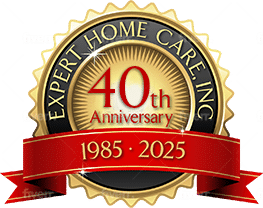New Jersey Senior Care News
Colorectal cancer (cancer of the colon and rectum) is the second leading cancer killer among men and women in the U.S. (after lung cancer). More than 140,000 new cases of colon and rectal cancer were diagnosed in 2010 and more than 50,000 deaths were attributed to these cancers.
And yet, the Centers for Disease Control and Prevention estimates that as many as 60 percent of these deaths could have been prevented with regular screenings.
The good news is that regular screenings can save lives. The bad news is that while many in recent years have become aware of the tests to prevent or catch the disease in its early stages, the disease’s high incidence and mortality rates would indicate that many are still avoiding them.
Colorectal cancer usually starts with polyps in the colon or rectum, abnormal but benign growths that if left untreated can turn into cancer. A painless test called a colonoscopy, performed under sedation, can help find and remove the polyps. In a colonoscopy, the doctor uses a thin, flexible, lighted tube to check for polyps or cancer inside the rectum and cancer.
The recommended guidelines call for screenings to begin at age 50 and continue every 10 years – as more than 90 percent of people with colorectal cancer are first diagnosed after age 50, with 72 the average age of diagnosis. More frequent tests may be recommended for those with a history of polyps or who have a higher risk for the disease. This would include those with a family history of colorectal cancer or a genetic disposition, a condition (such as Crohn’s) that causes inflammation of the colon, and cigarette smokers. Some studies suggest that diets high in fat (especially animal fat) and low in calcium, folate and fiber may also increase the risk. Yet, the most effective way to reduce the risk is by following the guidelines and having colonoscopy screenings.
Symptoms of colorectal cancer are often not apparent. Those that are include blood in or on your stool; persistent stomach aches or cramps; constipation or diarrhea; and loss of weight.
Posted by: David Goodman, President of Expert Home Care in New Jersey, which provides outstanding, reliable home health care and senior care for the elderly, helping them with their daily activities for 27 years! Call us at 800-848-2336 when you have home care related questions or need assistance for a loved one. Ask for your Free Home Care Consultation (a $375 value!).
- NJ Home Health Care Client Bill of Rights - March 12, 2019
- Senior Home Care Preparation For New Jersey Families - December 17, 2018
- Elder Abuse More Common Than Thought - December 10, 2018

